On March 30, 2024, I spoke at an event sponsored by City Lights books, in honor of Terry Bisson. Here’s my three-frame pan of the crowd in front of me.
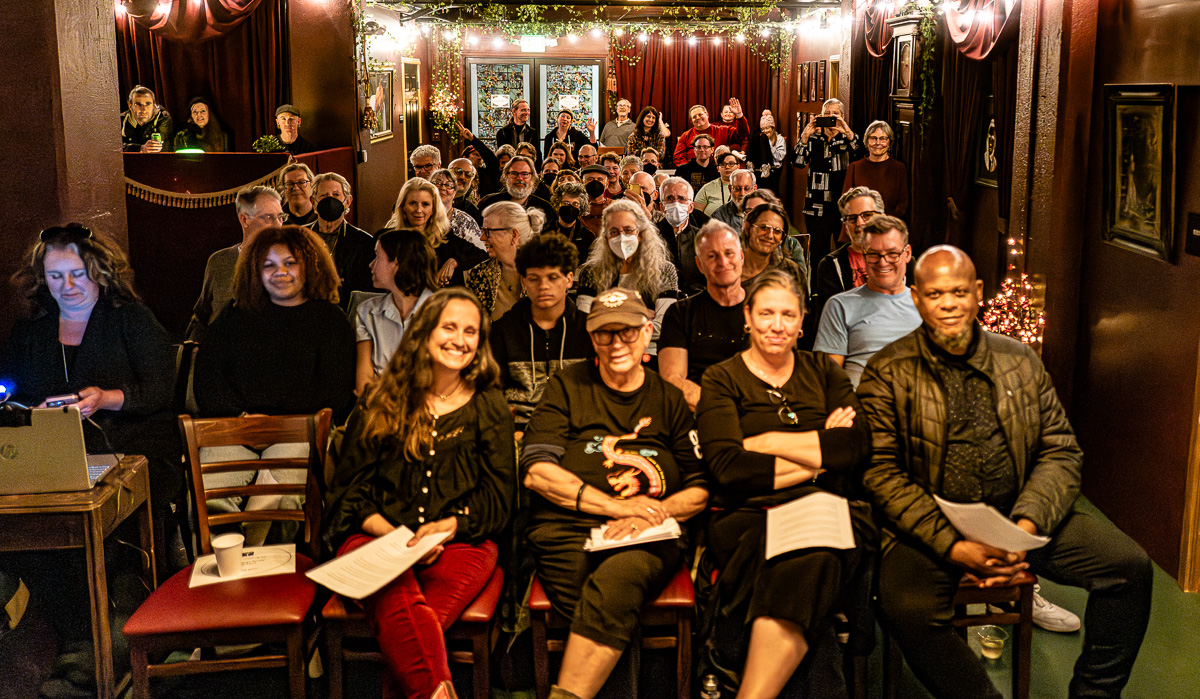
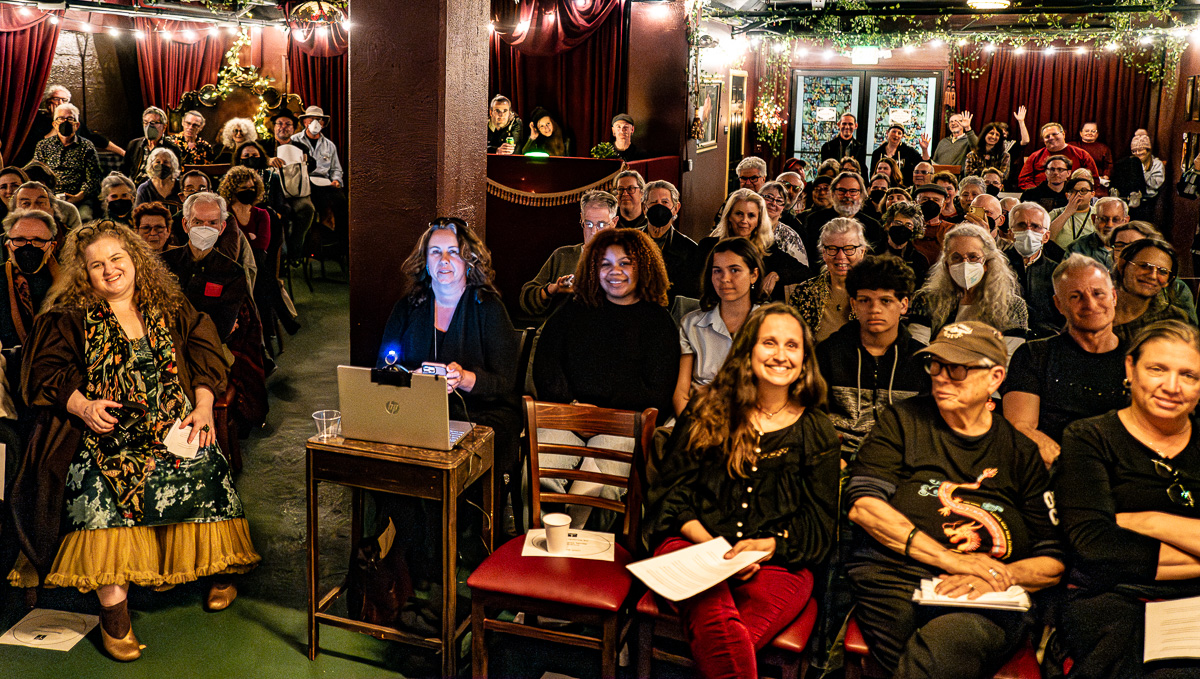
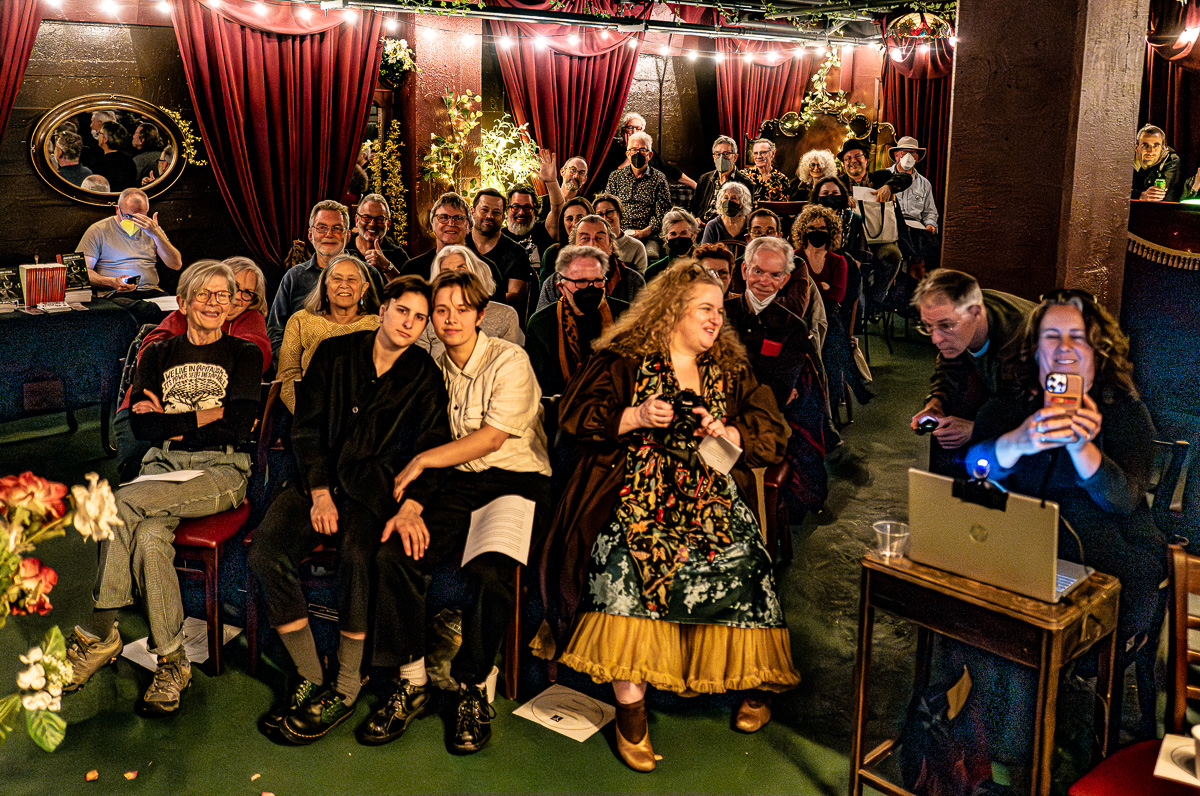
And here’s a version of what I said.
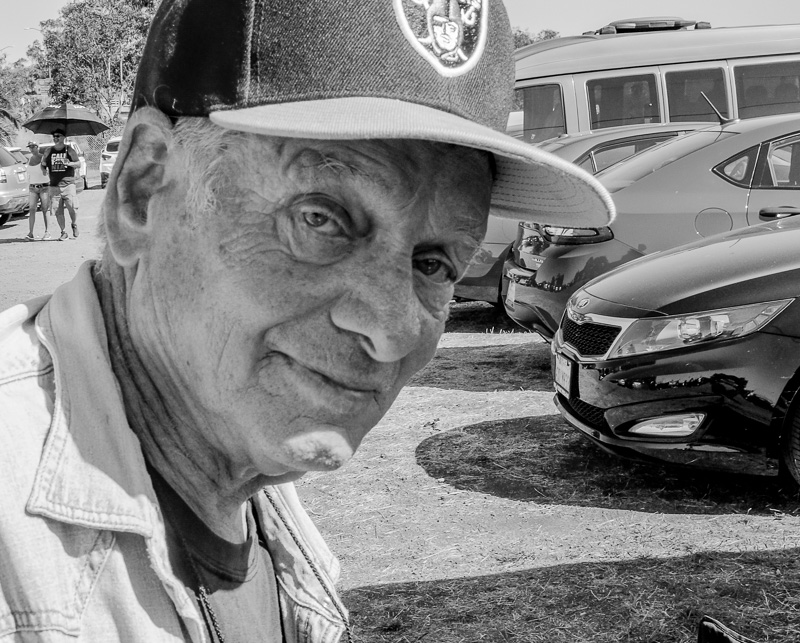
Terry Bisson 1942-2024
Memorial event at the Lost Church in SF
I met Terry in 1984. We felt an immediate rapport. We’re beatnik science fiction writers from Kentucky. We grew up wanting to be Beat authors, and to some extent we did that.
I’m from Louisville, Terry from Owensboro, which is the third largest city in Kentucky, as Terry would testily remind me, annoyed that I was unsure. Louisville was, after all, the big city.
Terry retained his Kentucky accent. His rasp and drawl gave our chats a pleasant, down-home tang. I always felt safe and comfortable with him. He was like a brother.
Re. growing up in the provinces, Terry has a wonderful, telling passage in his marvellous autobiographical novel, Any Day Now. His character has walked out past the end of a street in his small town..
“He kept his eyes on the ground until he was far out in the field. Then he looked up. There was the Universe. It was all stars. He lit a Kent and watched the smoke drift up into the Universe. Nobody in Owensboro even knew it was there.”
Terry is perhaps better known for his stories than for his novels. He once made in interesting comparison. “Writing a story is like fixing a car. You work on it for a couple of week and you’re done. Writing a novel is like being a farmer. You’re out in the field for years.”
My favorite of Terry’s SF novels is Pirates of the Universe. A work of genius, with the furthest-out SF I’ve ever seen. And it has a transreal quality, that is, it’s SF is grounded in the details of the author’s life; the hero is from somewhere like Kentucky
I started seeing more of Terry after 2002, when he moved to the Oakland hills with his partner Judy Jensen who is, among other things, an extreme quilter. At some point my Sylvia got into the craft, and that made another thing the four of us had in common.
We relished our get-togethers. Most years Terry would organize an Oscar-watching party, as befitted his self-anointed status as the world’s greatest film critic.
Terry was a man of letters. He edited scores of short books in the PM Press Outspoken Authors series, each including an incisive interview by him. And he was the convivial emcee of the monthly SF in SF readings organized by Rina and Jacob Weisman.
Terry was at all times knowledgeable, worldly, witty, good-humored, and radical. His wide-ranging autobio, Any Day Now, reflects his and Judy’s life in a commune. And his revelatory alternate-history novel Fire on the Mountain is about a world where, the Blacks of the US stage a successful revolution and secession.
SF writing can be a collaborative affair, and I had the pleasure of writing a fun story with Terry, “Where the Lost Things Are.” It’s about about two old men and their wives. It’s inspired by the following phenomenon: when you drop a pill on a tiled bathroom floor, the pill instantly disappears forever.
As another joint effort, I published Terry’s Billy’s Book under the aegis of my very small press Transreal Books. In today’s benighted marketplace nobody else would print it—although later another edition appeared.
The Billy stories are parody children’s stories, like some wag might have published in the 1950s New Yorker. They’re deep, simple, caustic, and punctuated by Terry’s stylistic trick of fastening on some phrase and repeating it multiple times in his narrative. Like riffs or beats. Good times.
I visited Terry and Judy a couple of weeks before he died. Though ailing, he was his same wise and congenial self. He was toying with a tool chest of wrenches, rearranging them.
His last words to me?
“See you on the other side.”
The man was a hero.
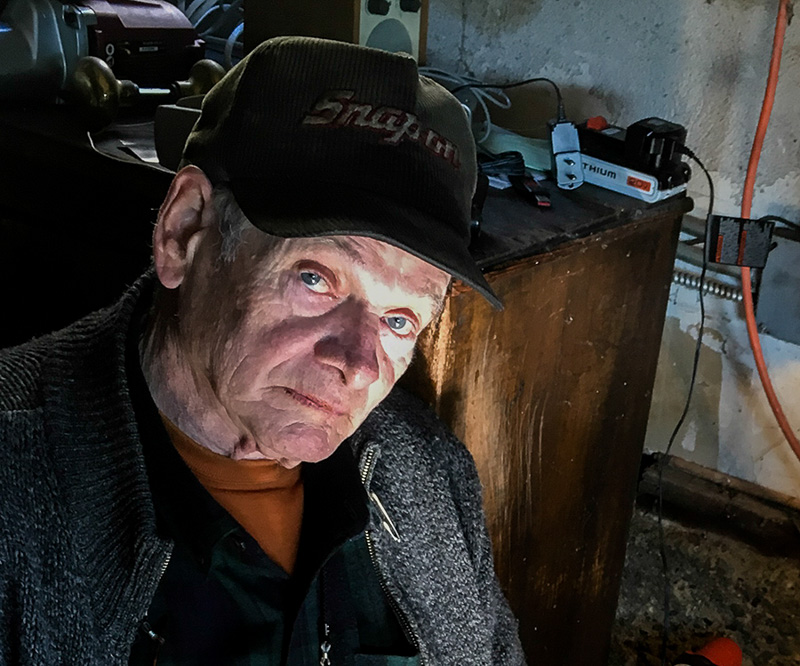









March 31st, 2024 at 11:07 pm
Terry was such a damn good writer, and so in tune with my own idea of writing perfection, that I didn’t even envy him. I simply took pleasure in his work, and it satisfied me as much as if I’d written it myself.